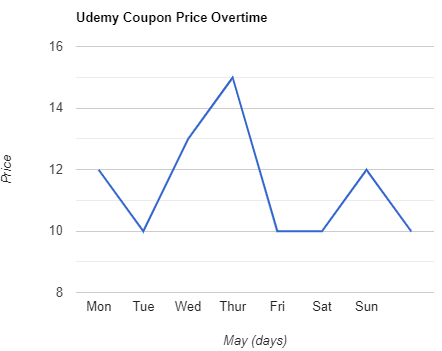Centralized Logging and Monitoring with Kubernetes (Udemy.com)
Hands-on guide to logging and monitoring containers at scale
Created by: Packt Publishing
Produced in 2022
 What you will learn
What you will learn
- Discover what Elasticsearch, Fluentd, and Kibana are (aka the EFK stack)
- See how to implement a centralized monitoring and logging platform with these technologies
- Discover what Kubernetes is and how to create a Kubernetes cluster in GCP for modern, containerized applications
- Deploy applications from Kubernetes to the cloud
- Scale the number of applications running in Kubernetes
- Install and configure monitoring and logging agents on the Kubernetes nodes
- Create powerful visualizations for metrics stored Kibana
- Effectively and efficiently analyze logs stored in Kibana
 Quality Score
Quality Score
Overall Score : 68 / 100
 Live Chat with CourseDuck's Co-Founder for Help
Live Chat with CourseDuck's Co-Founder for Help
 Course Description
Course Description
In this course, you'll learn to analyze and locate critical pod log files in your Kubernetes clusters. You'll create a centralized logging system with a configured EFK (Elasticsearch, Fluentd, and Kibana) stack for Kubernetes. Using a hands-on approach, you'll follow the entire logging and monitoring process, which actually goes hand-in-hand. In your Kubernetes cluster, you'll find out that your clusters are working with too many containers and it's difficult to keep track of each of them.
You'll learn how to build your centralized logging and send data for monitoring. To set up centralized logging, you'll establish one logging agent per Kubernetes node to collect all logs of all running containers from disk and transmit them to Elasticsearch. You'll search for log data, monitor the containers, and also collect metrics using Kibana. You'll decide how your final log data will be presented. By the end of the course, you'll be able to use centralized logging and monitoring techniques for debugging purposes to find out reasons for crashes, and trigger alerts if there is a spike in error messages (which can be more efficient than a system health check).
About the Author
Walter Dolce is a Software and Platform Engineer based in London, United Kingdom. He has worked for both small and medium-sized businesses as well as large enterprises such as the BBC and Just Eat. Over the course of the years, he has developed a deep knowledge of various areas of Software Engineering concepts and practices such as test-driven development, behavior-driven development, SOLID principles, design patterns, and more. He later transitioned to the DevOps/Platform Engineering space where he used that knowledge to implement highly available, resilient systems and platforms running on today's major Cloud providers such as Amazon Web Services, Google Cloud Platform, and Microsoft Azure.Who this course is for:
- This course is for DevOps engineers, developers, testers, sysadmins, and IT professionals who want to log and monitor containers in their Kubernetes clusters for debugging and other purposes.
 Instructor Details
Instructor Details

- 3.4 Rating
 5 Reviews
5 Reviews
Packt Publishing
Packt has been committed to developer learning since 2004. A lot has changed in software since then - but Packt has remained responsive to these changes, continuing to look forward at the trends and tools defining the way we work and live. And how to put them to work.
With an extensive library of content - more than 4000 books and video courses -Packt's mission is to help developers stay relevant in a rapidly changing world. From new web frameworks and programming languages, to cutting edge data analytics, and DevOps, Packt takes software professionals in every field to what's important to them now.
From skills that will help you to develop and future proof your career to immediate solutions to every day tech challenges, Packt is a go-to resource to make you a better, smarter developer.
Packt Udemy courses continue this tradition, bringing you comprehensive yet concise video courses straight from the experts.







